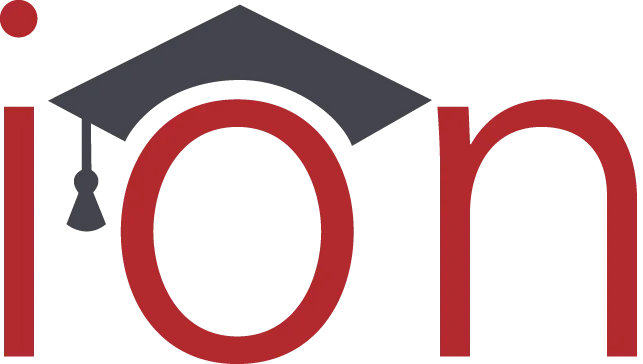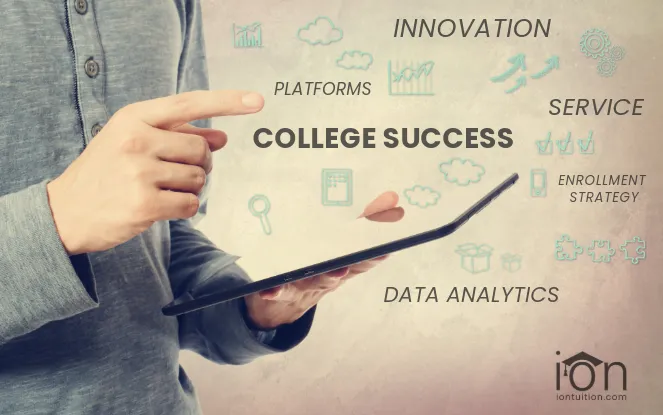Higher education is going through changes. Colleges and universities are grappling with complex challenges including fluctuating enrollment, rising student loan delinquency, shifting public perception, and confusing federal policy changes. These issues are not isolated; each issue has a domino effect. Unstable enrollment leads to financial instability, financial instability leads to gaps in quality which leads to shifting public perception that drives policy changes.
Successfully navigating these challenges requires a holistic approach that recognizes the interconnectedness of higher education issues and pushes college leadership to leverage data-driven strategies to adapt and thrive.
The Interconnectedness of Higher Education Challenges
Declining enrollment, especially among traditional student populations, puts pressure on college budgets. This financial strain can impact academic quality and student support services, further contributing to negative public perception. Meanwhile, the resurgence of student loan payments and the resulting rise in delinquency rates not only threaten students’ financial well-being but also impact colleges’ cohort default rates, affecting their reputation and potentially limiting access to federal funding.
These challenges create a ripple effect, making it harder for colleges to attract students, secure funding, and maintain public trust.
Colleges Need to Leverage Data-Driven Decision Making
The antithesis to uncertainty is data. It’s a necessity to drive decisions. Colleges must lean on previous data points to inform their strategies and measure their effectiveness. This includes:
- Strategic Enrollment Management: Analyzing enrollment trends by demographics, program, and student type to identify growth opportunities and target recruitment efforts effectively. Understanding which programs are in high demand and aligning them with workforce needs is crucial.
- Student Loan Repayment Tracking & Predictive Analysis: Monitoring student loan repayment trends to identify potential problem areas and develop targeted interventions. Tracking delinquency and predicting borrower profiles that are most likely to default allows colleges to proactively reach out to struggling borrowers and offer support.
- Measuring Program Effectiveness: Tracking graduate outcomes, such as employment rates and salary levels, to demonstrate the value of a college education and address public concerns about ROI. Using this data to improve curriculum and career services is essential.
Build Partnerships with Higher Education Experts
No college can navigate these challenges alone. Building strategic partnerships with organizations that specialize in areas like default aversion, financial literacy, and enrollment management is essential. These partnerships provide access to expertise, resources, and technology that significantly enhance a college’s ability to address these complex issues.
For example, partnering with organizations like IonTuition can provide colleges with:
- Better Enrollment Strategies: As traditional college student demographics change, so should your enrollment management strategy. Beginning this year, the number of high school graduates will drop, and colleges can partner with IonTuition to advance other enrollment campaign strategies and build data-backed workflows to improve positive results.
- Advanced Default Aversion Strategies: Expert guidance and technology to help students manage their loans and avoid delinquency and default. IonTuition’s platform offers personalized counseling and easy enrollment in income-driven repayment plans, helping colleges lower their cohort default rates.
- Data-Driven Insights: Access to data and analytics to track student loan repayment trends and identify at-risk borrowers. This information empowers colleges to proactively intervene and provide support.
- Enhanced Financial Literacy Programs: Resources and tools to educate students about responsible borrowing and financial management, setting them up for success both during college and after graduation.
Colleges that Adapt and Innovate Will Thrive
The higher education landscape will continue to evolve. Colleges that thrive will be those that embrace adaptability and innovation. This means:
- Staying Informed: Keeping abreast of changing demographics, economic trends, and policy developments that impact higher education.
- Embracing Technology: Leveraging technology to improve efficiency, enhance student support services, and personalize the learning experience.
- Focusing on Student Success: Prioritizing student outcomes and providing comprehensive support throughout the student lifecycle, from enrollment to graduation and beyond.
The challenges facing higher education are significant, but they are not insurmountable. By embracing data-driven decision-making, building strategic partnerships, and focusing on student success, colleges can navigate this new normal and thrive in the years to come.
Ready to explore how IonTuition can help your college navigate these challenges? Contact us today for a consultation.

